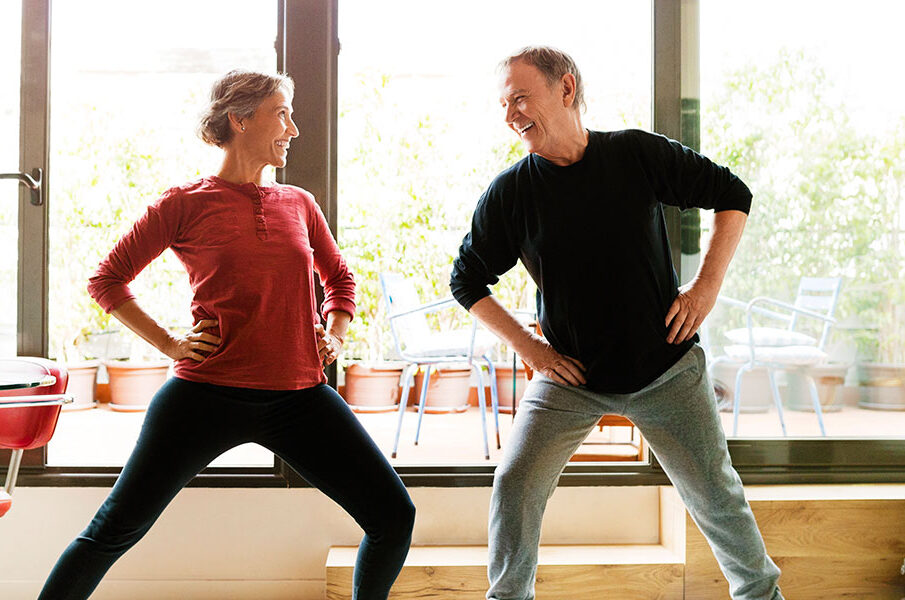How to Stay Fit after Retirement – 5 Daily Tips

Retirement is one of the several pivotal points in the life of every person. By the changes it brings, it can be compared with the first day at work after school, graduation, or the first day of school. And just like each of those moments, retirement introduces some new routines in our lives while eliminating some old ones. A rule of thumb is that most people become significantly inactive upon retirement. This can result in different health problems, such as weight gains, reduced flexibility of bones, etc.
Here are some activities that can help you stay physically fit and mentally sharp as a retiree.
Table of Contents
1) Regular morning walks
Our body is made for moving. A sedentary lifestyle is not a natural way of living. If we neglect the importance of movement in our lives, the body will start to complain. One of the key indicators of an unhealthy lifestyle is gaining weight. Also, back pain and the feeling of discomfort in muscles are both clear signs that we need to start moving more.
The most natural way of reducing – or at least suppressing – obesity is walking. Apart from that, walking can help people of all ages reduce the risk of heart diseases and strengthen their bones and muscles.
Once you get retired, you don’t have to rush anywhere in the morning after decades of a stressful morning routine. So, put on your trainers, slip into comfortable walking clothes and enjoy your mornings in the sun while improving your bodily functions.
2) Stretching and weightlifting
If you want to add a simple but effective exercise to walking, go for stretching. It will improve the conditions of your muscles and it will also make your bones more resistant to breakage and other issues.
As explained in the video published by More Life Health Seniors, you can do your stretching routine on a simple chair. So, the only equipment that you need is your body and a chair.
Apart from that, think about doing the stretching workout outdoors, before walking. You’ll spend more time in the fresh air, plus stretching will have some features of an aerobic workout. This will be beneficial to burn more calories and lose some weight.
In addition to walking and stretching, easy weightlifting is another practical way of keeping your body in shape without too much physical tension. All you need is a pair of dumbbells and a training mat. The weight of dumbbells will depend on your current physical shape and workout goals. Feel free to talk to a fitness trainer to choose the right weights for your needs.
3) Balanced and reduced diet
Retirement usually means a reduced need to move, due to a lack of compulsory daily obligations. It also includes spending more time at home. And this usually leads to having more meals and eating more food.
If you’ve noticed that you take in more food than before, it’s time for a simultaneous battle on two fronts. On the one hand, try to suppress the eating urge and limit yourself to three main meals and fruit snacks between each of them.
On the other hand, take care to avoid sugars, saturated fats, and alcohol. These three groups of ingredients are the key culprits for the deteriorated condition of bones and muscles. Instead of them, base your diet on complex carbohydrates, whole grain and whole wheat flour and bread, as well as a lot of protein, fiber, and vitamins.
What’s more, make sure to drink enough water. What the ageing process in the elderly does is reduce the amount of water in the body. This can cause various issues, from extremely dry skin to digestive problems. Also, fresh fruit juices two or three times a day will be a beneficial addition to your diet. Furthermore, don’t forget to add the blend of prebiotics, probiotics, and green superfoods Morning Complete to your diet for easing digestion and enhancing immunity and overall health.
4) Intensive socialization
Losing the circle of colleagues, friends, and acquaintances from work for many people results in depression and anxiety. This becomes even more intensive if you live alone and going to work was the same time the only socialization you had.
Now, it’s time to turn a new leaf. The morning walks above will help you meet people of similar age and habits. Perhaps you can even form a walking or training group. It would help you work out and socialize at the same time.
Apart from that, join one or more pensioners’ associations in your town or neighborhood. These groups usually organize various events and trips for pensioners.
If possible, spend time with your children and grandchildren, as well, if you have any and if they live near you.
5) Mental hygiene
Staying in good physical shape is easier if you keep your mind fresh. This is where mental hygiene comes on stage.
For starters, make a list of books that you’d like to read, movies you’d like to watch or events you’d like to visit on a weekly basis. Exposing yourself to these positive external stimuli will keep your mind fresh and your willpower strong. If there are some movies or music you liked when you were young, get back to them and see how you look at them now.
You can start learning a foreign language upon retirement. These activities will activate some portions of your brain that have been idle for decades. In turn, you’ll keep the mental engine going and open your mind for new things.
Staying fit is important at every stage in life. However, it’s even more significant in retirement. When you’re in school and when you’re a company employee, there’s a system that takes care of you and pushes you forward. Once you get retired, you need to expose yourself to things to stay in physical, mental, and social shape. So, keep active, follow our tips, and make your life as a retiree as eventful and joyful as possible.










